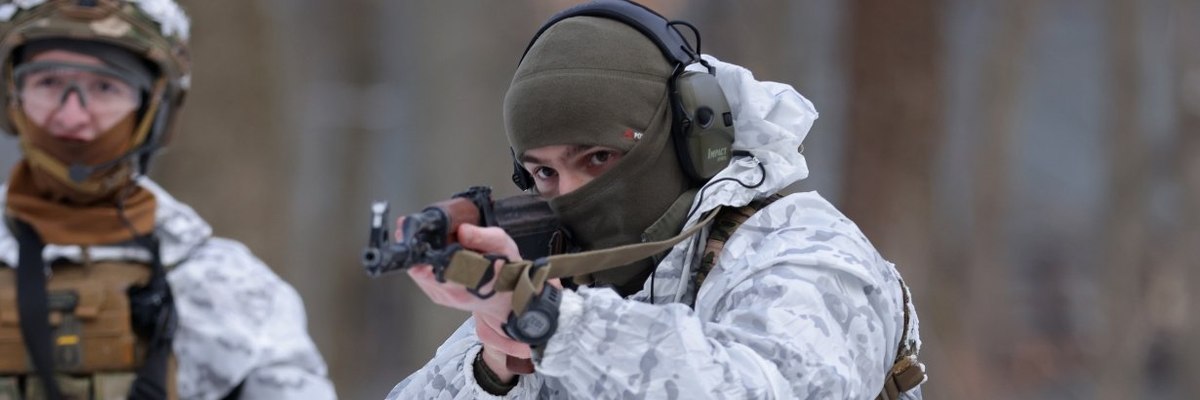Over half of Britons think Russia poses a serious threat
In scenes reminiscent of the Cold War, the leaders of the West and Russia are staring each other down once more, with both sides seeking to rattle their sabres – and perhaps their opponent’s resolve.
Russia claims that the possibility of Ukraine joining NATO poses a threat to its borders and that the 100,000 Russian troops stationed near the Ukrainian border are merely on exercises. Ukraine joining NATO has always been unlikely, and Western countries fear Russia is concocting grievances in order to justify an intervention, and have sent weapons and advisors to the country.
Now a new YouGov EuroTrack + US survey looks at attitudes of Americans and the publics in major Western European nations regarding the situation.
How likely is a Russian invasion of Ukraine?
As well as ground troops, Russia has placed large numbers of armoured fighting vehicles, helicopters, jets, and artillery on its border with Ukraine. While the Ukrainian foreign minister has insisted otherwise, the extent of the build-up leads many to believe an invasion is only a matter of time.
Across the West, a Russian invasion of Ukraine within the next two years is seen as likely. Americans are particularly likely to see an invasion as close at hand (62%), and are twice as likely as the European nations surveyed to say an invasion is “very likely”, at 35%.
Swedes are the Europeans most likely to think war is coming (58%), with around half (53%) of Danes and half of Germans (51%) agreeing. In no country do more than 28% of people think an invasion is unlikely.
Half (49%) of Britons also see a Russian incursion into Ukraine as likely, as do some 46% of Spaniards, 43% of French people and 40% of Italians.
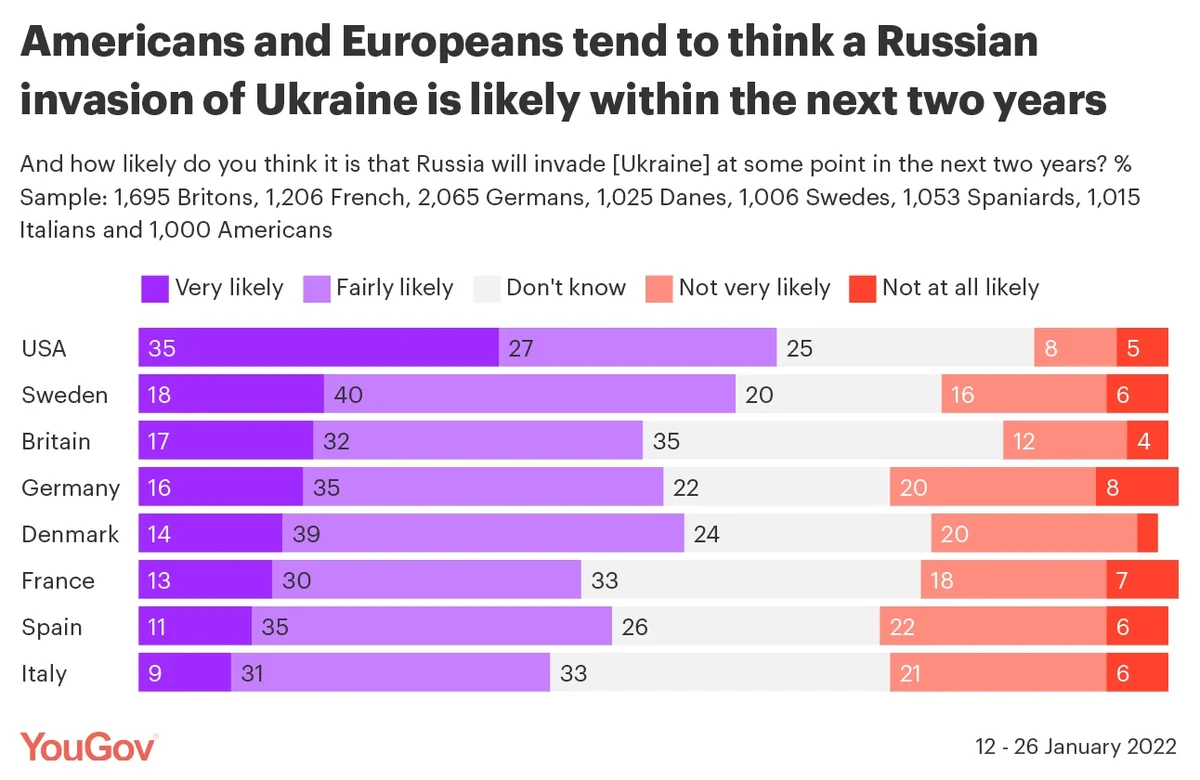
Should America and European nations use their militaries to defend Ukraine?
The United States has placed 8,500 of its troops who are already stationed in Europe on high alert in anticipation of an invasion. For the first time since the Cold War, the US has also placed one of its aircraft carriers, the USS Harry S Truman, along with its strike group, under NATO control.
With American forces likely to make up the main contribution to a NATO mission, the US public are split 35% in favour of using force to defend Ukraine versus 28% who are opposed. There is support among both Republicans (43% vs 28%) and Democrats (39% vs 25%) for getting involved in the fighting should war break out.
The issue proves more divisive in Europe. Denmark is the only European country surveyed to lean towards support for defending Ukraine directly but, as in the US, opinion is relatively lukewarm, at 38% in support to 29% opposed.
While Britain has already sent anti-tank weapons and advisors, the public is split 30% for and 32% against using direct military force to defend Ukraine. Conservative voters slightly back military action in the event of a Russian invasion (35% to 29%), while Labour voters are split 31% in favour and 34% opposed.
Other European publics tend to think their militaries should not assist Ukraine, including the French (36% opposed to their country helping to defend Ukraine versus 26% in favour) and the Italians (40% versus 21%).
Some 52% of Germans oppose using their military to defend Ukraine, the highest across the nations surveyed, and up from 47% who said they would oppose military action to defend Ukraine in 2019. Approaching a quarter (23%) think the Bundeswehr should be used to defend Ukraine.
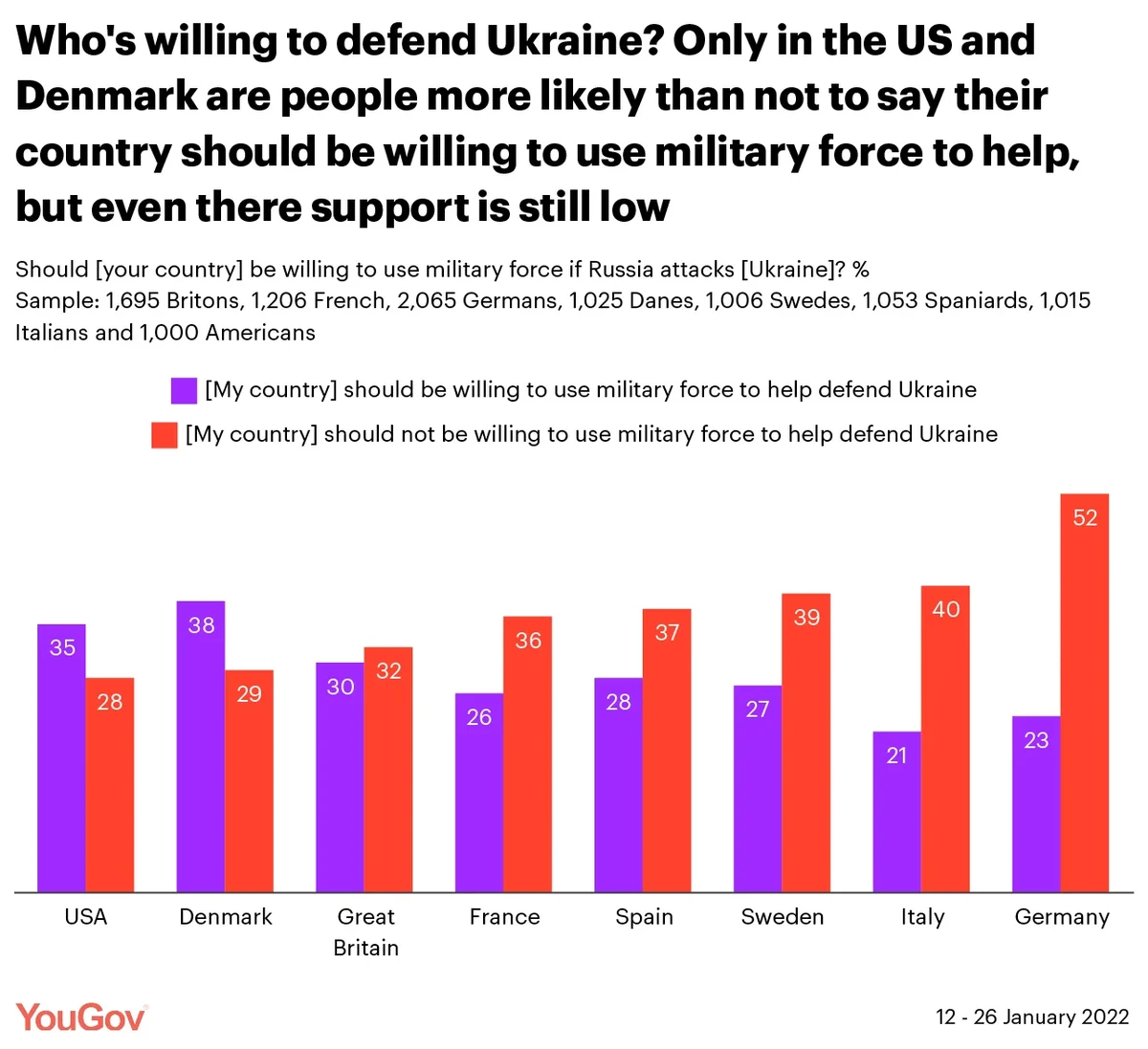
Ukraine is not a NATO member, and so Western nations are not obligated to come to its defence. But there are concerns that Russia ambitions stretch further west, so YouGov also asked about willingness to defend two other countries that are NATO members: one from Eastern Europe (Poland) and one Baltic state (Latvia).
Willingness to defend these nations varies from about the same as Ukraine to somewhat higher, but none of the results will give Poles or Ukrainians much comfort.
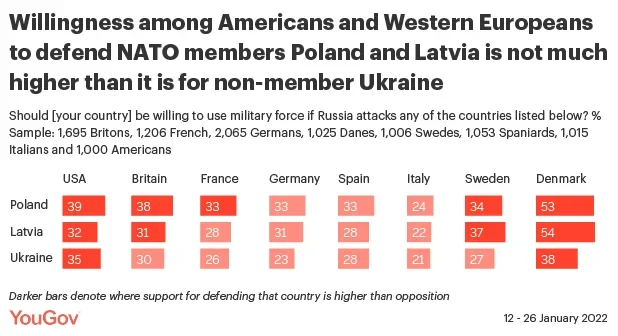
How much of a threat is Russia?
Many Americans and Europeans feel Russia poses a direct threat to their nation, a sense which has grown steadily in several countries over the past five years.
No one feels this more than the Swedish, with 61% saying Russian poses a serious threat (measured as those who rank the threat posed as 7 out of 10 or above), an increase of 11 points since 2019.
Most Americans also consider Russia to be a major threat (58%), although this figure is largely unchanged since 2017.
In Britain, 57% say Russia poses a serious threat to the UK, up five points from 2019, and 14 points when compared to 2017 – this increase between 2017 and 2019 is likely tied to the poisoning of dissidents Sergei and Yulia Skripal in Salisbury.
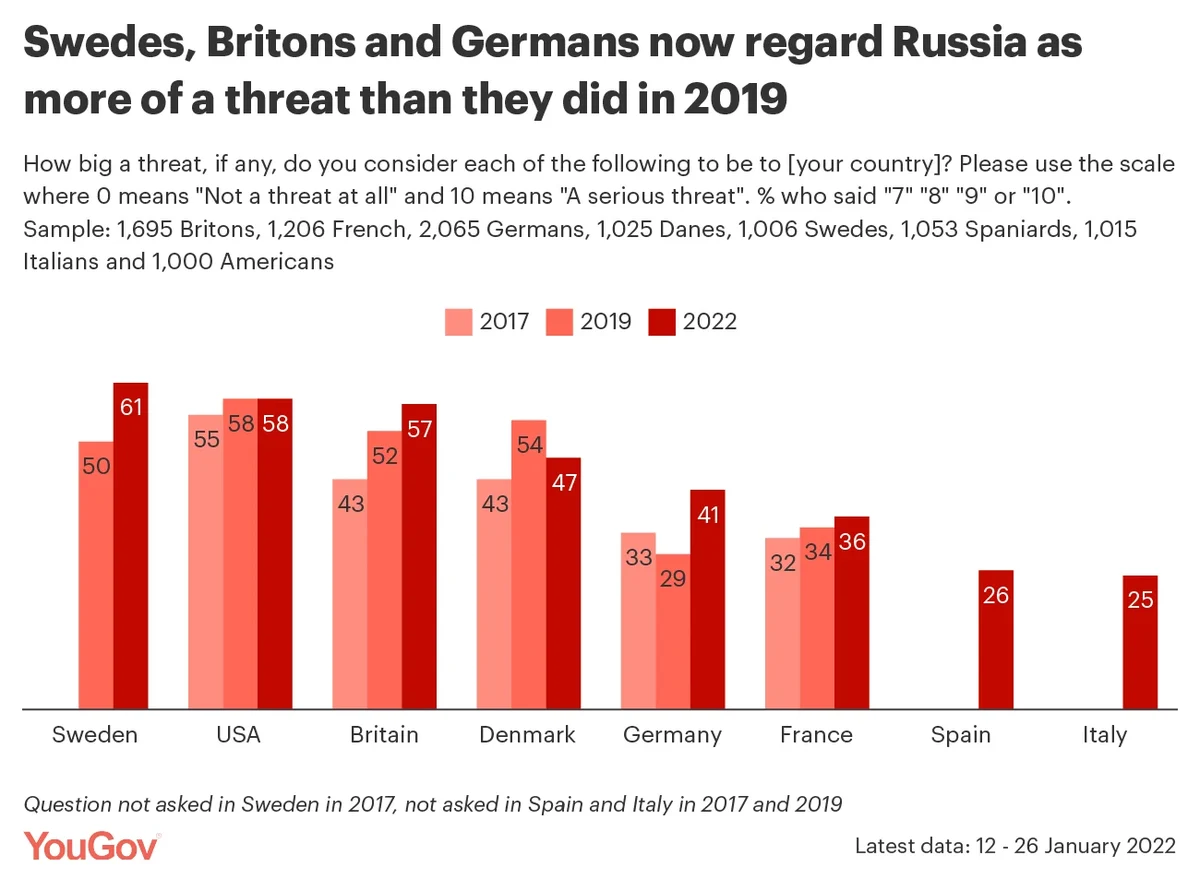
In Germany, 41% now see Russia as posing a serious threat, compared to three in ten (29%) who said the same in 2019, and 33% in 2017.
The Spanish (26%) and Italians (25%) are the least likely to see Russia posing a serious threat to their countries. This is the first time the question has been asked there, so there is no historical data on this measure.
